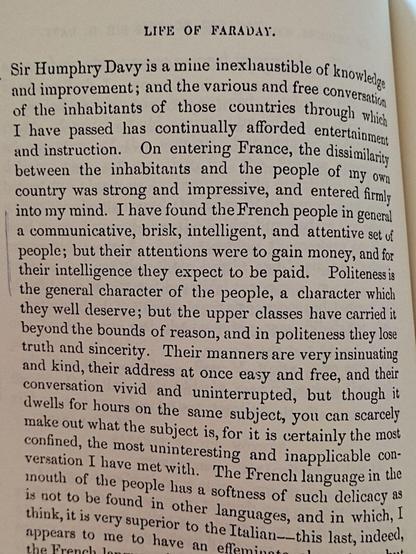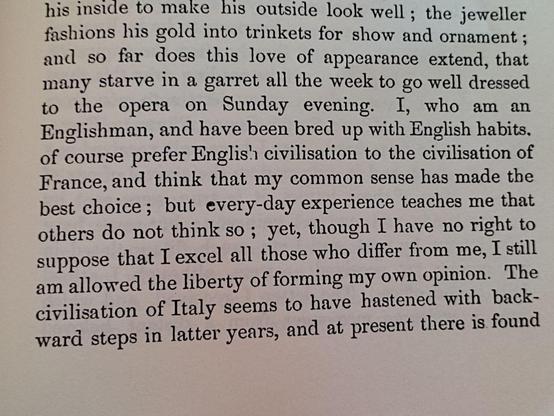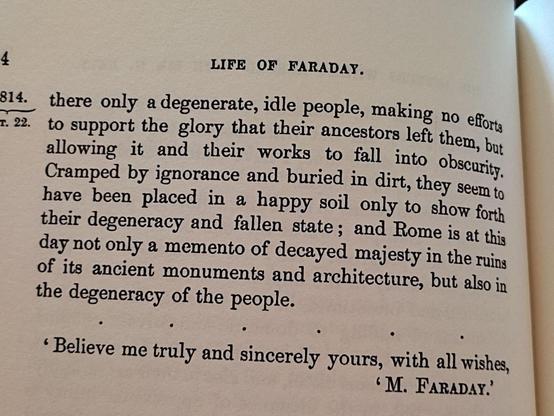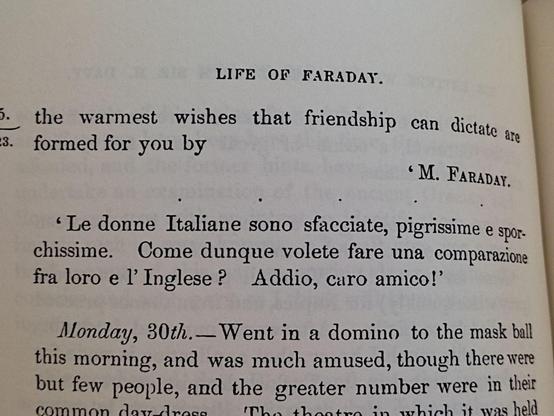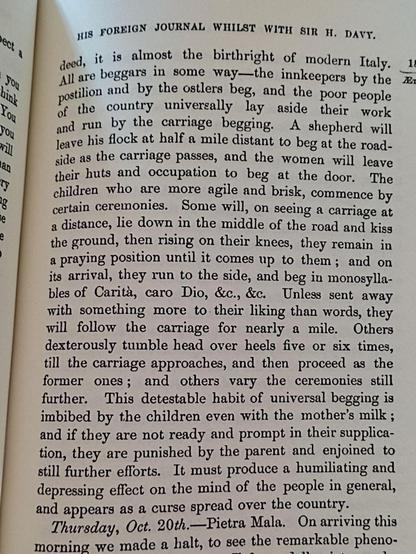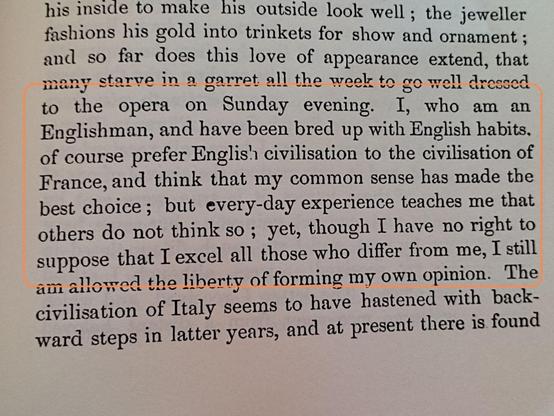For reasons I will once explain, I am becoming a conoisseur of Michael #Faraday life and correspondance.
These are his (not too flattering) feelings about the people he met in #France (mostly in Paris), during his first trip abroad following his master, Sir. Humphry Davy, in 1814 (he was 23 at the time), in a letter he sent to his friend Abbott.
